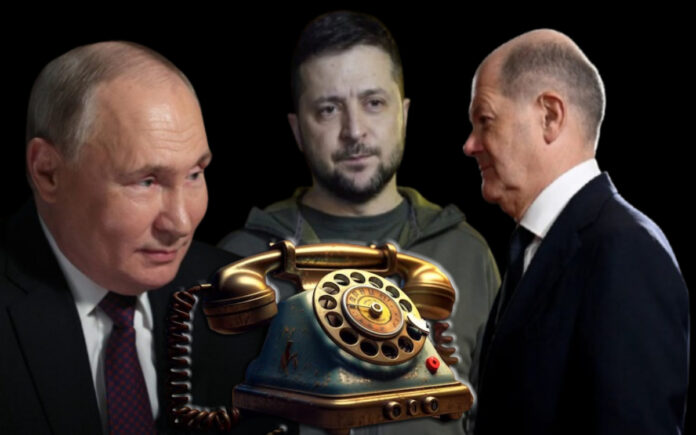Berlin: German Chancellor Olaf Scholz and Russian President Vladimir Putin held their first conversation in nearly two years, signaling a noteworthy development in diplomatic efforts amid the ongoing war in Ukraine. According to Al Jazeera, the phone call occurred on Friday and came as Germany and the broader international community grappled with the protracted conflict.
Scholz Pushes for Peace Talks
Chancellor Scholz, who faces a snap election in February following the collapse of his coalition government, used the call to urge Putin to engage in peace negotiations with Ukraine. Scholz emphasized the need for a “just and lasting peace,” reflecting Germany’s continued commitment to supporting Ukraine.
A German government spokesperson highlighted that Scholz condemned Russian strikes on Ukrainian infrastructure and expressed concern over reports of North Korean soldiers assisting Russian forces in the Kursk region. Scholz warned that such actions could escalate the conflict further.
“Germany will support Ukraine for as long as necessary,” Scholz reaffirmed, according to Al Jazeera.
Putin’s Counterarguments
Putin attributed the ongoing crisis to NATO’s “aggressive policies,” reiterating Russia’s stance that any agreements must address its security concerns, recognize new territorial realities, and tackle the underlying causes of the war.
“Possible agreements must take into account the interests of the Russian Federation in the area of security, proceed from new territorial realities, and most importantly, eliminate the root causes of the conflict,” Putin stated during the conversation, as reported by Al Jazeera.
Putin also expressed interest in reviving energy trade with Germany, proposing “mutually beneficial cooperation” if Berlin demonstrated willingness to explore such possibilities.
Zelensky Warns Against Weakening Isolation of Russia
Ukrainian President Volodymyr Zelensky criticized the call, warning that it could open “Pandora’s box” by reducing Putin’s diplomatic isolation.
“Now there may be other conversations, other calls. Just a lot of words. And this is exactly what Putin has long wanted: it is extremely important for him to weaken his isolation,” Zelensky cautioned.
Also Read | Deadly Israeli Strikes in Lebanon’s Baalbek Leave Six Dead, 11 Hurt
Broader Context of the Call
The conversation occurred during a pivotal period for Ukraine. Russian forces continue to make incremental advances in the east while conducting airstrikes on both military and civilian infrastructure. Additionally, the geopolitical landscape is shifting, with the re-election of Donald Trump in the United States raising questions about the future of American military and financial support for Ukraine.
German domestic politics also play a role. Growing public sentiment in eastern Germany calls for an end to military support for Ukraine, adding pressure on Scholz as his government navigates a volatile political environment.
Implications and Challenges Ahead
The phone call highlights the intricate dynamics of diplomacy amid a protracted conflict, raising questions about its potential impact on peace efforts and geopolitical alliances. While Scholz’s outreach may signal hope for dialogue, it underscores the delicate balance Ukraine and its allies must maintain to counter Russian aggression effectively.



